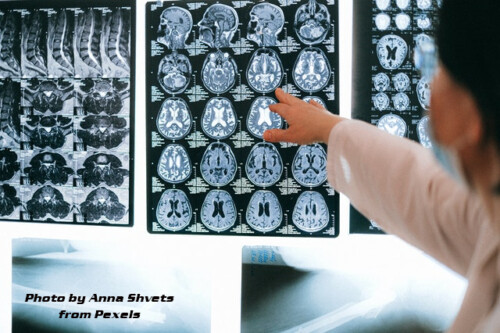Preserving Cognitive Agility: Strategies, Nutrition, and Supplements for Maintaining a Sharp Mind as We Age
By Editorial Team
As we age, maintaining mental sharpness and cognitive agility becomes a priority. Fortunately, there are several strategies, lifestyle choices, and dietary considerations that can help support brain health and promote optimal cognitive function. In this discussion, we explore a range of techniques, including mental exercises, lifestyle modifications, dietary factors, and potential natural supplements, that can contribute to keeping our minds sharp as we grow older. It is important to note that while these suggestions are based on scientific evidence and expert advice, it is always recommended to consult with a healthcare professional before making any significant changes to your diet or starting any new supplements.
Mental Exercises and Cognitive Stimulation:
Engaging in regular mental exercises and cognitive stimulation is vital for maintaining a sharp mind. Activities such as reading, puzzles, board games, learning new skills, and engaging in intellectually stimulating conversations help keep the brain active and enhance cognitive function. Additionally, activities that challenge memory, attention, and problem-solving abilities, such as crossword puzzles, Sudoku, or brain training apps, can help improve cognitive performance and promote neuroplasticity.
Physical Exercise and Healthy Lifestyle Habits:
Regular physical exercise not only benefits cardiovascular health but also supports cognitive function. Engaging in aerobic exercises, such as brisk walking, swimming, or cycling, promotes healthy blood flow to the brain and stimulates the release of neuroprotective substances. Moreover, adopting a healthy lifestyle, including getting sufficient sleep, managing stress, avoiding smoking, limiting alcohol consumption, and maintaining social connections, can all contribute to better cognitive health and reduce the risk of cognitive decline.
Balanced and Nutrient-Rich Diet:
A well-balanced and nutrient-rich diet plays a crucial role in maintaining cognitive function. Key dietary recommendations include:
a. Antioxidant-rich foods: Incorporate a variety of fruits and vegetables into your diet, as they contain antioxidants that help reduce oxidative stress and inflammation, both of which can contribute to cognitive decline. Blueberries, leafy greens, and colorful vegetables are particularly beneficial.
b. Omega-3 fatty acids: Include fatty fish (such as salmon, sardines, and mackerel), flaxseeds, chia seeds, and walnuts in your diet. Omega-3 fatty acids are essential for brain health and have been linked to improved cognitive function.
c. B vitamins: Consume foods rich in B vitamins, such as whole grains, leafy greens, legumes, and lean meats. B vitamins, including folate, vitamin B12, and vitamin B6, are involved in brain function and the synthesis of neurotransmitters.
d. Curcumin and spices: Curcumin, found in turmeric, has shown promise in reducing inflammation and oxidative damage in the brain. Additionally, spices like cinnamon and sage have been associated with potential cognitive benefits.
Potential Natural Supplements:
While maintaining a healthy diet should be the primary focus, certain natural supplements have shown promise in supporting cognitive health. However, it is essential to consult with a healthcare professional before starting any new supplements. Some examples include:
a. Omega-3 fatty acid supplements: If it is challenging to obtain sufficient omega-3 fatty acids through diet alone, supplements like fish oil capsules can be considered.
b. Ginkgo biloba: This herbal supplement has been studied for its potential cognitive benefits, including improved memory and concentration. However, its effectiveness may vary from person to person.
c. Vitamin E: Antioxidant properties of vitamin E have been linked to potential cognitive benefits. However, high doses of vitamin E supplementation should be avoided due to potential risks.
d. Resveratrol: Found in grapes and red wine, resveratrol has been associated with improved cognitive function. However, further research is needed to fully understand its effects.
Preserving cognitive agility and maintaining a sharp mind as we age involves a multifaceted approach. Engaging in mental exercises, adopting a healthy lifestyle, following a balanced diet rich in antioxidants and essential nutrients, and considering certain natural supplements can contribute to optimal brain health. However, it is important to remember that everyone’s needs and responses may vary. By implementing these strategies, we can enhance our chances of maintaining cognitive function and promoting overall well-being as we navigate the aging process.
The information provided in this discussion is for educational purposes only and should not replace professional medical advice. It is crucial to consult with a healthcare professional before making any significant changes to your diet, lifestyle, or starting any new supplements. Each individual’s health status and medical history are unique, and personalized guidance is essential to ensure the safety and efficacy of any interventions related to brain health.

